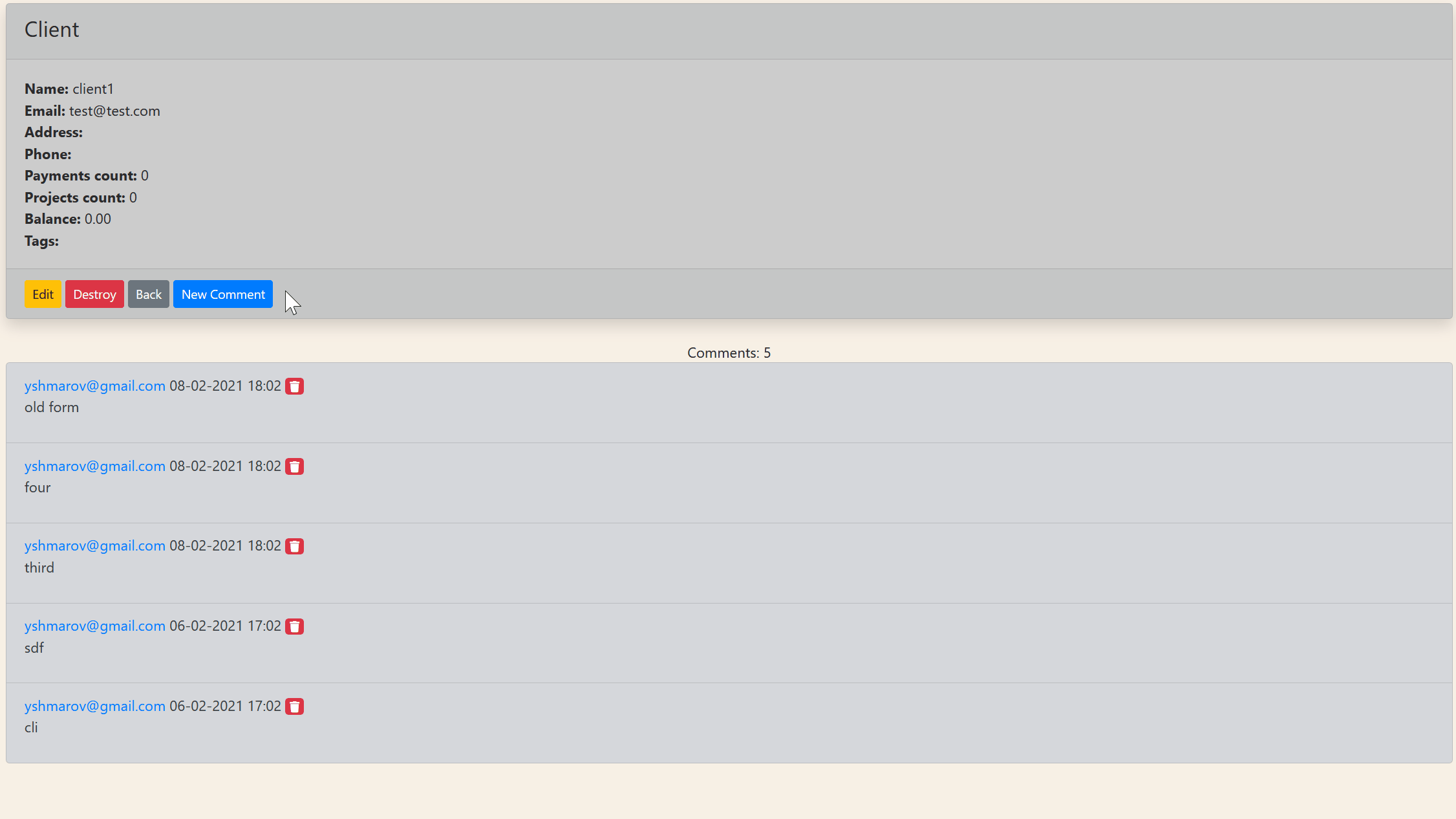 Polymorphism 101. Part 1 of 3. Polymorphic Comments.
Polymorphism 101. Part 1 of 3. Polymorphic Comments.
My current best approach for creating polymorphic child records based on the best bits from all other approaches.
This example - creating polymorphic Comments table that can be integrated easily into any model.

Step 1. Add polymorphic comments to the application #
console
rails g migration create_comments content:text commentable:references{polymorphic}
app/models/comment.rb
class Comment < ApplicationRecord
belongs_to :commentable, polymorphic: true
validates :content, presence: true
def to_s
content
end
end
app/controllers/comments_controller.rb
class CommentsController < ApplicationController
before_action :set_commentable
def new
@comment = Comment.new
end
def create
@comment = @commentable.comments.build(comment_params)
if @comment.save
redirect_to @commentable, notice: "Comment created"
else
render :new
end
end
def destroy
@comment = Comment.find(params[:id])
if @comment.destroy
redirect_to @commentable, notice: "Comment deleted"
else
redirect_to @commentable, alert: "Something went wrong"
end
end
private
def comment_params
params.require(:comment).permit(:content)
end
def set_commentable
if params[:user_id].present?
@commentable = User.find_by_id(params[:user_id])
elsif params[:post_id].present?
@commentable = Post.find_by_id(params[:post_id])
end
end
end
app/views/comments/_form.html.erb
<%= form_for [@commentable, @comment] do |f| %>
<% if @comment.errors.any? %>
<% @comment.errors.each do |error| %>
<%= error.full_message %>
<% end %>
<% end %>
<%= f.label :content %>
<%= f.text_area :content %>
<%= f.submit %>
<% end %>
app/views/comments/_index.html.erb
Comments:
<%= @commentable.comments.count %>
<% commentable.comments.each do |comment| %>
<%= comment.created_at.strftime('%d-%m-%Y %H:%m') %>
<%= link_to "Destroy", [@commentable, comment], method: :delete %>
<%= simple_format(comment.content) %>
<br>
<% end %>
app/views/comments/new.html.erb
New Comment for:
<%= link_to @commentable, @commentable %>
<%= render 'comments/form' %>
routes.rb
resources :posts do
resources :comments, only: [:new, :create, :destroy]
end
Step 2. Add polymorphic comments to a model. For example post #
app/controllers/posts_controller.rb
def show
@commentable = @post
@comment = Comment.new
end
app/models/post.rb
has_many :comments, as: :commentable, dependent: :destroy
app/views/posts/show.html.erb - with a link to create a comment
<%= link_to "New Comment", new_post_comment_path(@commentable, @comment) %>
<%= render partial: "comments/index", locals: {commentable: @commentable} %>
app/views/posts/show.html.erb - alternative - with a comments form in the view
<%= render template: "comments/new" %>
<%= render partial: "comments/index", locals: {commentable: @commentable} %>
Notes #
In comments_controller you have to update the action set_commentable with each model that you want to make commentable.
This is better than creating a separate comments_controller for each commentable model.
To add polymorphic to one more model, repeat step 2 by replacing the word post with whatever model you want.
Bonus: Save which user created a comment #
-
rails g migration add_user_references_to_comments user:references - To save
current_userwho created a comment, incomments_controllercreateaction above lineif @comment.saveadd the line@comment.user_id = current_user.id
Using simple_form #
<%= simple_form_for [@commentable, @comment] do |f| %>
<%= f.error_notification %>
<%= f.error_notification message: f.object.errors[:base].to_sentence if f.object.errors[:base].present? %>
<%= f.input :content, label: false, required: true %>
<%= f.button :submit %>
<% end %>
Did you like this article? Did it save you some time?
You might also like: #
- RE-REVISED: Polymorphism 101. Part 5 of 3. Even better Polymorphic Comments
- REVISED: Polymorphism 101. Part 4 of 3. Polymorphic Comments
- Button to update status attribute of a table
- Polymorphism 101. Part 3 of 3. ActsAsTaggable without a gem. SelectizeJS
- Polymorphism 101. Part 2 of 3. Polymorphic Payments inside-out.